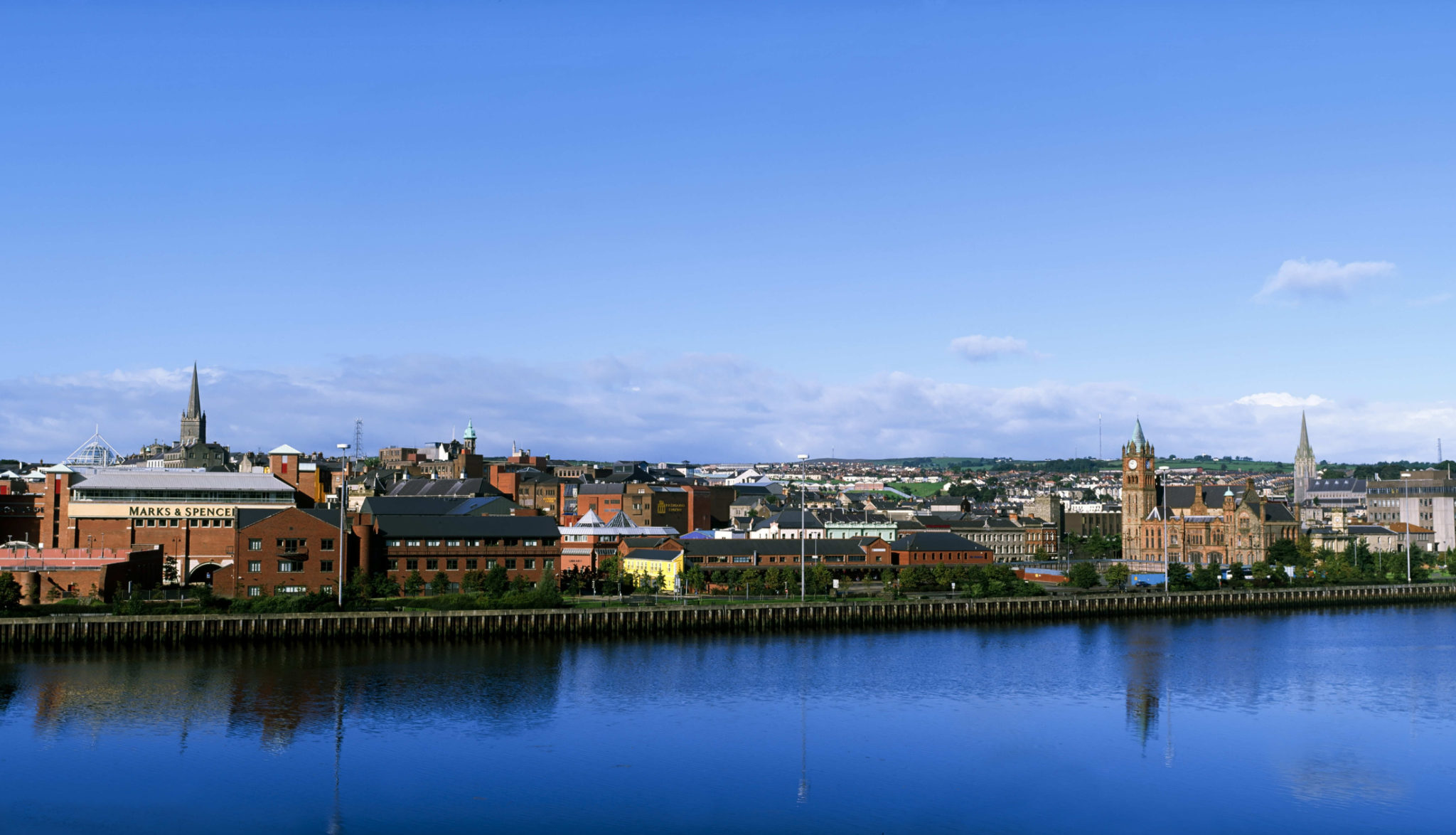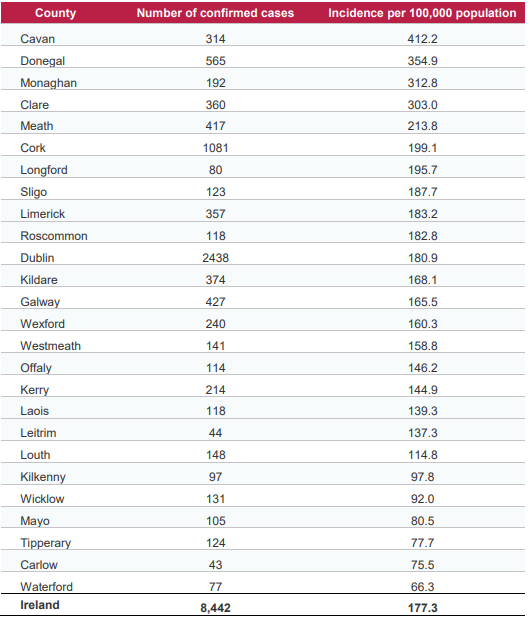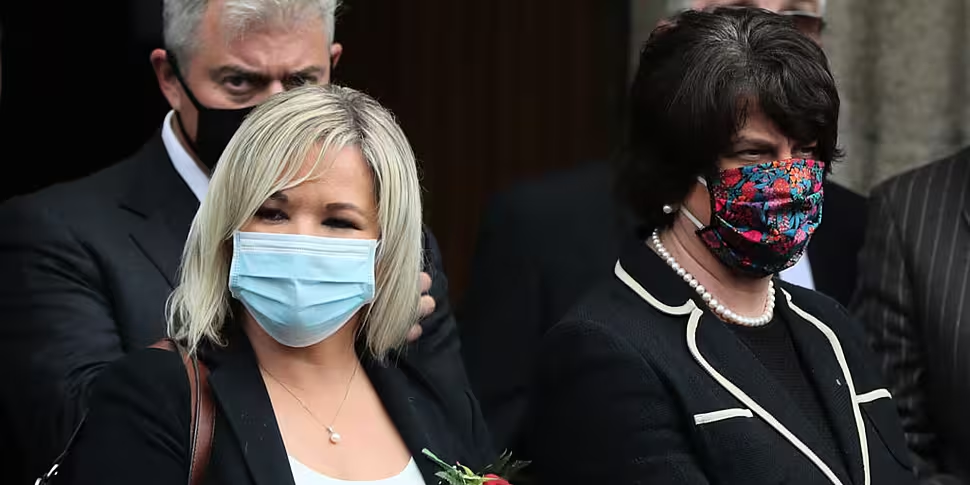Politicians in the North have announced a four-week ‘circuit-breaker’ lockdown in a bid to tackle spiralling coronavirus rates.
Pubs and restaurants will only be permitted to offer takeaway and delivery services and the mid-term school holidays have been extended to two weeks.
No more than ten people from two households will be allowed in any home and overnight visits will be banned.
Circuit-breaker
Speaking at the Executive this morning, DUP leader Arlene Foster said the four-weeks can only be extended with politicians’ approval.
“We believe the above restrictions should apply for four weeks and the continuation or amendment of any element would require executive approval.
“In education, the half-term holiday break will be extended from the 19th to the 30th of October with schools reopening again on Monday the November 2nd.”
Border
The Government in Dublin now has a decision to make after the Tánaiste Leo Varadkar confirmed to Newstalk that officials would consider whether to increase restrictions in the border counties after Stormont announced its move.
On Lunchtime Live meanwhile, Northern Ireland's Deputy First Minister Michelle O'Neill said the two-week school closure could yet be extended.
Lockdown
Under the new rules, agreed after a late-night session in Stormont yesterday:
- All unnecessary travel will be banned and people must work from home where possible.
- All events involving more than 15 people will be banned and shops and off-licences will not be allowed sell alcohol after 8pm.
- All non-elite indoor sports will be suspended; however, places of worship and gyms will be allowed to remain open.
- Third-level education will move online, “as much as and where possible.”
- Weddings will be limited to 25 people with no receptions. Funerals will also be limited to 25 people with no gatherings before or after the ceremony.
“We fully appreciate that this will be difficult and worrying news for a lot of people,” said Ms Foster.
“The Executive has taken this decision because it is necessary and we discussed the impacts in great detail. We do not take this step lightly.
“We must reach a different place on both the numbers and on getting back to the basics of social distancing and I know everyone will want to work with us on that.”
Coronavirus cases
This afternoon, the Northern Ireland Department of Health said 1,217 people had tested positive for the virus in the past 24 hours.
Two further deaths were also reported.
Hospitals in the North are now at 87% occupancy with nearly one-quarter of intensive care capacity taken up by COVID-19 patients.
 Derry city, 31-07-2007. Image: The Irish Image Collection/Zuma Press/PA Images
Derry city, 31-07-2007. Image: The Irish Image Collection/Zuma Press/PA ImagesDerry City and Strabane still have the highest rates in the country – with 991.6 new cases for every 100,000 people in the past week.
The figures are now nearly at the point where there has been one new COVID-19 patient for every 100 people in the area this week.
Belfast has the second-highest rates at 486.2 while Mid Ulster is on 463.
 The number of new COVID-19 cases per 100,000 people over the past two weeks in every county in Ireland. Image: HPSC
The number of new COVID-19 cases per 100,000 people over the past two weeks in every county in Ireland. Image: HPSCMeanwhile, three border counties in the Republic now have 14-day rates above 300 – with Cavan hardest hit at 412.2 cases for every 100,000 people.
Donegal is in second at 354.9 while Monaghan is in third at 312.8.
County Clare is also above 300 at 303 while Meath is on 213.8.









